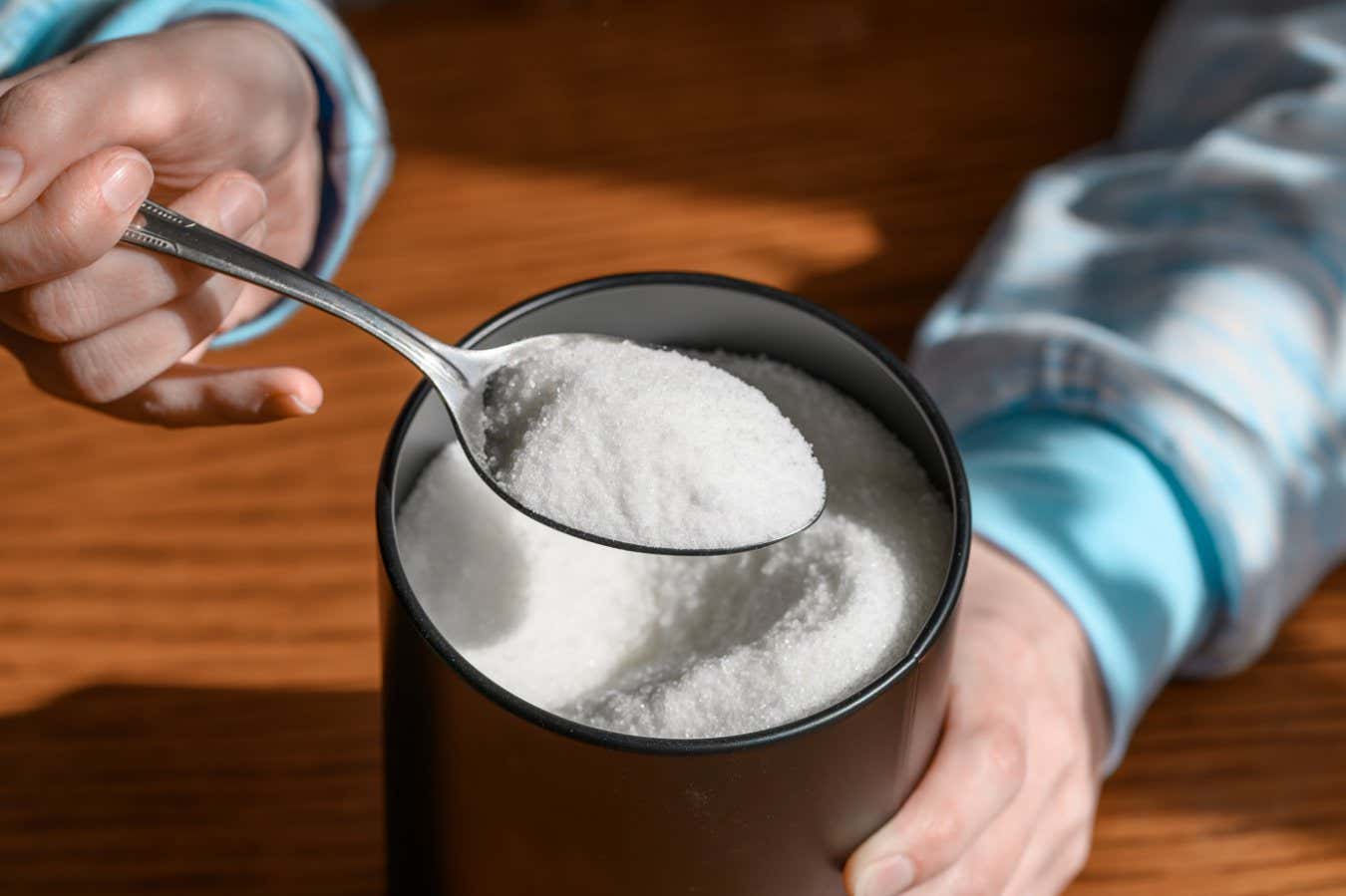A small study found that the sugar substitute erythritol makes blood more susceptible to clotting, which can raise the risk of heart attack and stroke
By Grace Wade
8 August 2024
A popular sugar alternative could harm heart health
PawelKacperek/Shutterstock
The low-calorie sweetener erythritol makes blood more prone to clotting. This may explain why it has been linked to a greater risk of heart attack and stroke in previous research in people.
Erythritol is a sugar alcohol found at low concentrations in fruits and vegetables that is about 70 per cent as sweet as sugar. Our bodies also produce the compound in small amounts. It contains almost no calories, making it a popular sugar substitute, especially in the US and Europe, says Stanley Hazen at the Cleveland Clinic in Ohio. For several decades, erythritol has been added to products such as chewing gums, beverages and baked goods.
Read more
Low-carb diets: An easy way to lose weight or recipe for heart attack?
Advertisement
While regulatory agencies like the US Food and Drug Administration and the European Food Safety Authority have long classified erythritol as safe, a growing body of evidence indicates it may harm heart health. A previous study from Hazen and his colleagues showed that people susceptible to heart attack or stroke with high concentrations of the compound in their blood had double the risk of these conditions compared with those with lower concentrations. Animal experiments also found that erythritol can prompt blood clotting.
To see if the same is true for people, Hazen and his colleagues collected blood samples from 10 participants before and 30 minutes after they drank water with 30 grams of erythritol – about the average amount people in the US consume daily. They repeated the process in a separate group of 10 people, replacing the erythritol with 30 grams of sugar. The participants had no underlying health conditions.
The researchers used two compounds at varying doses to prime blood to form possible clots. This helped them compare susceptibility to clotting before and after sugar and erythritol consumption.
